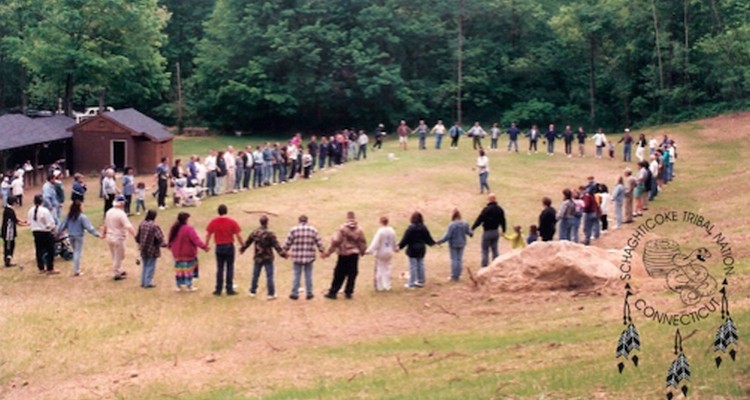The struggle is real for the Schaghticoke Tribal Nation (STN), who since 1981 has petitioned for federal recognition and most recently the right to compete for Connecticut’s third casino along with the Mohegans and the Mashantucket Pequots.
The 300-member Schaghticoke tribe’s approximately 400-acre reservation located in Kent between the western bank of the Housatonic River and New York State is one of the oldest in the U.S. and while the tribe has been recognized by the state since the reservation was granted in 1736, it is still not recognized by the federal government.
In January 2004, after the Mashantucket Pequot Tribal Nation, the Mohegan Tribe, and the Eastern Pequot Tribal Nation gained federal recognition; the STN was recognized as an Indian tribe according to federal law. But the decision by the Bureau of Indian Affairs (BIA) was rescinded on May 12, 2005, after the “Schaghticoke Acknowledgement Repeal Act of 2005” H.R.1104 (pdf) was introduced by Representative Nancy Johnson and the state determined that the STN did not fulfill enough of the requirements necessary to qualify for federal recognition. Among the five requesters of the BIA’s final review, which included the state, one landowner, and several local governments all of whom strongly opposed the BIA’s decision, was the 130-member Schaghticoke Indian Tribe (SIT), which was formed when the tribes’ split in 1986 and who recently also petitioned for federal acknowledgement.
The STN was the first tribe to have its federal acknowledgement rescinded and to add salt to an already festering wound; new rules were issued by the BIA last year, which state that tribes that have been previously denied federal recognition are not eligible to re-petition for status.
Another blow was dealt to the tribe on February 10 this year, when Secretary of the State Denise Merrill notified the STN that the mistake made by her office in accepting its application for the formation of a tribal business entity, the “Confluence of Rivers Business Entity LLC,” in January, doesn’t give the tribe a right to develop a casino in Connecticut. Last year, Special Act No. 15-7 (pdf) was passed by the General Assembly allowing the pursuit of a third casino in Connecticut by a “tribal business entity.” The provision, however, is limited to the Mashantucket Pequots and Mohegans. The limited liability corporation was created by the STN solely for the purpose of developing a casino under the special act. In a press release (pdf) in March, the STN’s chief, Richard L. Velky, who was elected in 1987, commented on the move by the state to grant an additional license saying that he did not think the tribe was receiving equal treatment, and on March 7, the STN filed its own lawsuit against Connecticut for failing to include it in the plan to build a third casino in the state. Velky said, “The Schaghticoke Tribal Nation seeks equal treatment under the law and that does not exist under Connecticut Special Act No. 15-7.”
Meanwhile, the Mashantucket Pequot and Mohegan Tribes enjoy exclusivity in the state being the only two entities entitled to build casinos on or off reservation lands. And who together, formed MMCT Venture last year, which was made possible by the new legislation and in turn facilitated the tribes’ request for proposal (pdf). The two tribes announced plans last year to build a joint commercial casino in order to compete with the $950 million casino that MGM Resort International plans to build in neighboring Springfield, Massachusetts.
It remains to be seen whether or not Connecticut will approve a third casino, but either way, the STN will continue to push for federal recognition. In an interview with a The New York Times, Chief Velky said that whether the state likes it or not, the STN is one of Connecticut’s first families and that won’t change. He went on to say that, “It’s kind of sad when you say you have to prove your existence,” and, “We had to go back 300 years to prove our first encounter with Europeans. It’s not easy when you have an overseer, who is the state, who is overseeing you and fighting against you at the same time.”


